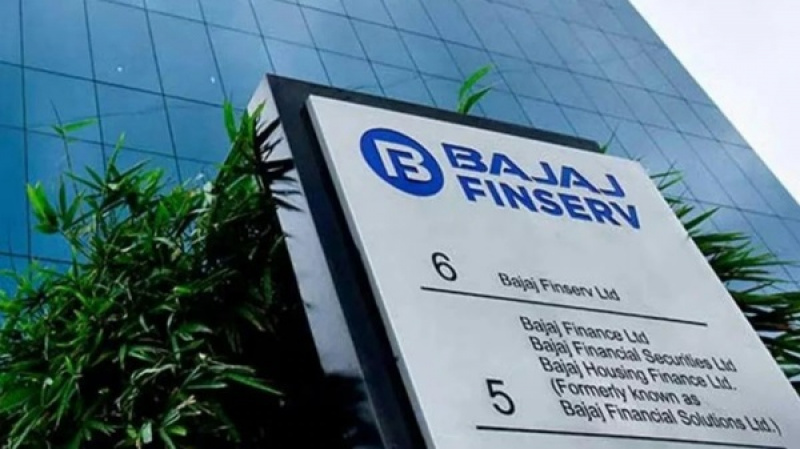Does falling rupee calls in for big money expected to come in through NRI investments in India?
The depreciation of the rupee gives a psychological boost to both NRI's as well as Indian developers. Each depreciation cycle invites NRI’s as they find i
- by B2B Desk 2019-09-25 10:34:18
The rupee depreciation has always invited NRI investments, particularly in the Indian realty sector. It has always been observed that the inflow of foreign exchange significantly increases whenever even there is a little slide in the rupee value. Looking back, if we look at the demonetisation phase, investment in Real Estate by NRI’s had significantly declined. The cash ban in the real estate sector hit it bad as more than 60% of the total transactions in the sector were cash dependent. Moreover, whenever anyone thought of parking their cash, Real Estate investment was the top investment stock preferred by an individual.
The depreciation of the rupee gives a psychological boost to both NRI's as well as Indian developers. Each depreciation cycle invites NRI’s as they find it cheaper to invest in real estate in India. To add to it, the developers focus their entire marketing initiatives to attract more NRI's. Though the sales do not happen immediately, but the interest gets evoked. The final sales take time as the complete sales cycle involves processes like identifying the right property, negotiations, documentation, and so on. If we look at the real figures, completing one NRI transaction take time from a month to as long as three months. This long sales cycle often makes the NRI lose the advantage as during this period the rupee may strengthen. Moreover, there is no guarantee that the buyer will continue to enjoy the benefits of a depreciated rupee during the payment life-cycle. On the other hand, this depreciating rupee benefits he buyers who are in the process of finalising an existing transaction.
The Union Budget 2017 is has given a big boost to the sector. The sector has not only been made attractive, but also on the top charts for investment in the year 2017. The secondary market is becoming a preferred option by the NRI’s who are looking for second homes in India. The major focus on improving affordability of homes is of major benefit to the end users. This will not only increase the sales of these affordable homes in the domestic market, but also in the International market. Experts have shared that the Real Estate sector will recover in the next three to four quarters once the complete impact of demonetisation will fade away. Both the domestic and NRI end user as well as an investor is being optimistic about the sector. The year 2014 marked an era for the ease in transactions for NRI’s in the Indian market. It is being predicted that in 2017, NRI investment in the top cities of India will be close to $11 billion plus.
The Traps on the investment path: A lot of developers often take NRI’s as an easy target and hype up their marketing initiatives. Through marketing only, they create a picture as if the projects being offered has been specially created for them, making them feel that what they are offering is different from the standard offerings in the market. This may be problematic for someone who is not physically present in India. Lack of proper project details and management makes their investment depreciating rather than appreciating in addition to legal issues. It is therefore advisable that NRI’s should make decisions only by consulting Real Estate professionals.
Thus, it is true that for NRI's, the Indian real estate market definitely holds the highest possible investment potential, but at the same time they should not be emotional decisions. They should be thought through and properly researched and through a trusted Real Estate name in India.
POPULAR POSTS
GBC@IV: PM Modi to launch over 14,000 projects worth Rs 10 lakh crore in UP
by B2B Desk, 2024-02-19 07:12:52
Nitin Gadkari launches 28 NH projects worth Rs 6,600cr in Odisha
by B2B Desk, 2024-02-16 06:23:10
How InvIT will help construction companies to boost Infrastructure Development
by B2B Desk, 2023-05-09 07:36:30
Sunteck Realty leases commercial space to Upgrad, to make Rs 2,000 cr
by B2B Desk, 2023-03-02 09:02:34
Godrej Properties buys 60-acre land in Chennai to develop housing project
by B2B Desk, 2023-01-13 06:35:04
Godrej Properties buys 9-acre land in Gurugram, eyes revenue of Rs 2,500 cr
by B2B Desk, 2022-12-30 04:27:30
M3M buys Panipat land parcel from Indiabulls Housing Finance for Rs 1,500 crore
by B2B Desk, 2022-12-23 05:28:29
RECENTLY PUBLISHED

Paytm Secures Government Approval for Investment in Payments Division
- by B2B Desk, 2024-07-26 11:28:31

Introducing Bajaj Finserv AMC's New Fund: Focused on 25-30 Largecap Stocks
- by B2B Desk, 2024-07-25 12:47:43

Essential Business Management Software: Tools Every Business Should Consider
- by B2B Desk, 2024-07-25 10:33:09





 Subscribe now
Subscribe now 